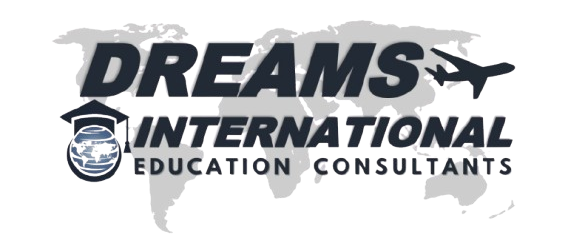- World-Class Education: Home to ETH Zurich and EPFL, both in the global top 20.
- Multilingual Environment: Study in English while living in a multicultural and multilingual society.
- Innovation and Research Hub: Ideal for STEM, business, and hospitality programs.
- Global Exposure: Host to numerous international organizations including the UN and WHO.
- Safe and Beautiful Country: High standard of living and breathtaking natural landscapes.
Switzerland
Switzerland, officially known as the Swiss Confederation, is a landlocked country located in the heart of Europe. Known for its political neutrality, world-class infrastructure, scenic beauty, and high standard of living, Switzerland also boasts a robust education system with globally recognized universities.
Switzerland, known for its political neutrality, breathtaking landscapes, and top-tier quality of life, is one of Europe’s most stable and prosperous nations. Strategically located in the heart of Europe, it borders countries like France, Germany, Italy, and Austria, making it a central hub for international business and diplomacy.
Despite being a relatively small country, Switzerland plays an outsized role in global affairs, being home to numerous international organizations, including the United Nations, WHO, and WTO. It’s also globally recognized for its innovations in science, technology, finance, and hospitality.
Switzerland is a multilingual country, with four official languages—German, French, Italian, and Romansh. This cultural diversity adds a rich dimension to student life and offers opportunities to learn and engage with multiple European cultures.
View List
Quick Facts
Category | Details |
Official Name | Swiss Confederation |
Capital | Bern |
Major Cities | Zurich, Geneva, Lausanne, Basel |
Population | Approx. 8.9 million |
Area | 41,285 sq. km |
Languages | German (63%), French (23%), Italian (8%), Romansh (0.5%) |
Currency | Swiss Franc (CHF) |
Time Zone | Central European Time (CET, UTC+1) |
Government | Federal parliamentary republic |
Climate | Temperate, with regional variations (alpine in mountainous areas) |
Religion | Predominantly Christianity |
International Students | ~20% of total student population |
Safety Index | Among the top 10 safest countries globally |
Contact Us
Get in touch with Dream International and start your study abroad journey today!
Why Study in Switzerland?
Benefits
- Globally recognized degrees
- Strong industry-university linkage, especially in science and business
- Availability of English-taught programs
- Opportunity to work part-time (up to 15 hours/week during term)
- Strong employability and research infrastructure
- High potential for internships with multinational companies
Education System in Switzerland
Switzerland boasts one of the world’s most advanced and inclusive education systems. It combines theoretical knowledge with practical training and is structured to foster innovation, research, and international collaboration.
Key Features:
- Bologna Process Aligned: Swiss degrees follow the European Higher Education Area system—Bachelor’s, Master’s, and Doctorate (PhD).
- Globally Ranked Institutions: ETH Zurich and EPFL are regularly ranked in the global top 20.
- Public vs. Private Institutions: Most universities are publicly funded and highly affordable compared to other Western countries.
- Multilingual Instruction: Courses are offered in German, French, Italian, and increasingly in English (especially at postgraduate level).
- Focus on Research: Switzerland is among the world leaders in scientific research output and innovation.
- University Types:
- Traditional Universities (e.g., University of Zurich, University of Geneva)
- Universities of Applied Sciences (UAS) – career-oriented and industry-linked
- Universities of Teacher Education
- Private Business and Hospitality Schools – globally reputed in niche sectors
Academic Degrees:
Degree | Duration | Description |
Bachelor’s | 3 years | Foundation in academic and professional subjects |
Master’s | 1.5–2 years | Specialized education in chosen field |
PhD | 3–5 years | Research-focused doctorate programs |
Diploma Programs | 6 months – 1 year | Offered mainly by private institutions (esp. in hospitality/business) |
Language of Instruction:
- Bachelor’s: Mostly taught in national languages (German, French, or Italian)
- Master’s & PhD: Many are taught in English to cater to international students
Grading System:
Swiss universities use a 6-point grading scale:
- 6 = Excellent
- 5 = Good
- 4 = Pass
- Below 4 = Fail
Book Your Free Consultation Today!
Intakes for International Students in Switzerland
Swiss universities typically follow a bi-semester academic system, offering two main intakes per year, although some private and applied science universities may offer multiple intakes or rolling admissions.
Main Intakes
Intake | Semester Name | Duration | Availability |
Fall Intake | Autumn Semester | September – January | ✅ Major intake (widest program availability) |
Spring Intake | Spring Semester | February – June | ✅ Limited program availability |
Application Timeline (General)
For Fall (Autumn) Intake – Starts in September
Step | Recommended Timeline |
Research & university shortlisting | August – November (previous year) |
Start application preparation (IELTS, SOP, LORs) | October – December |
Application deadlines | January – April |
Admission results | March – May |
Visa application | May – July |
Travel &enrollment | August – September |
For Spring Intake – Starts in February
Step | Recommended Timeline |
University shortlisting | May – July (previous year) |
Application deadlines | August – October |
Admission results | October – December |
Visa processing | November – January |
Enrollment | February |
Variations by Institution Type
Institution Type | Intake Frequency | Notes |
Public Universities | 2 intakes (Fall & Spring) | Most Master’s programs have a single intake in Fall. Spring intake offers limited courses. |
Universities of Applied Sciences (UAS) | 2 intakes (Fall & Spring) | Flexible with more Spring intake options. Focus on technical and professional education. |
Private Universities & Business Schools | Multiple intakes (Rolling) | Often offer 3–4 intakes/year (e.g., Jan, April, July, Oct). Flexible deadlines. |
Hospitality Management Schools | 3–4 intakes/year | Institutions like Les Roches and Glion offer intakes in Jan, April, July, and Oct. |
Important Notes:
- Fall Intake is preferred: Most scholarships, visa slots, and popular programs are available during this term.
- Visa processing may take 8–12 weeks, so it’s crucial to apply early.
- Deadlines for non-EU students are usually earlier than for EU/EEA students.
- Some competitive programs (especially at ETH Zurich or EPFL) may only offer one intake per year.
Application Process
General Admission Requirements:
- Completed application form
- Academic transcripts
- Statement of Purpose (SOP)
- Letters of Recommendation (LORs)
- Proof of English or German/French/Italian proficiency (depending on program)
- Copy of passport
- CV/Resume (for Master’s)
- Proof of financial resources
Language Requirements:
- English-taught programs: IELTS (6.0–7.0) / TOEFL iBT (80–100)
- German/French/Italian programs: CEFR B2 level certificate or equivalent
Application Deadlines:
- Fall Intake (Primary): February to April
- Spring Intake (Limited): September to November
Book Your Free Consultation Today!
Post-Study Work Opportunities
- Students can stay for 6 months after graduation to find a job related to their field of study.
- Must apply for a residence permit for job search.
- Once employed, students can apply for a work permit sponsored by the employer.
- Switzerland’s job market is strong in finance, pharmaceuticals, engineering, IT, and hospitality.
Top 30 Universities in Switzerland (with World Rank & Tuition Fees)
University Name | QS World Rank (2025) | Avg. Tuition Fees/year (CHF) | Popular Programs |
ETH Zurich | 7 | 1,300–1,600 | Engineering, Computer Science |
EPFL | 16 | 1,266 | Life Sciences, Robotics |
University of Zurich | 91 | 1,500–2,000 | Medicine, Law, Finance |
University of Geneva | 131 | 1,000 | International Relations, Law |
University of Bern | 126 | 1,500 | Medicine, Environmental Science |
University of Lausanne | 220 | 1,160 | Biology, Business |
University of Basel | 136 | 1,700 | Life Sciences, Pharmacy |
University of St. Gallen (HSG) | 372 | 3,300–6,000 | Business, Economics |
University of Fribourg | 563 | 1,500 | Theology, Social Sciences |
UniversitàdellaSvizzeraitaliana (USI) | 345 | 4,000 | Informatics, Architecture |
Lucerne University of Applied Sciences | 751–800 | 1,200–2,500 | Design, Engineering |
Zurich University of Applied Sciences | 701–750 | 1,300–2,000 | IT, Engineering, Business |
Geneva School of Diplomacy | N/A | 14,000+ | International Relations |
Geneva Business School | N/A | 13,000–16,000 | MBA, Finance |
Glion Institute of Higher Education | N/A | 30,000+ | Hospitality Management |
Les Roches Global Hospitality Education | N/A | 40,000+ | Hospitality Management |
Business School Lausanne | N/A | 20,000+ | MBA, Entrepreneurship |
EU Business School (Geneva/Zurich) | N/A | 14,000–20,000 | Business Administration |
Webster University Geneva | N/A | 30,000+ | International Relations |
Swiss School of Management | N/A | 14,000+ | MBA |
IHTTI School of Hotel Management | N/A | 25,000–30,000 | Hospitality, Business |
César Ritz Colleges Switzerland | N/A | 30,000+ | Hotel & Tourism |
HTMi Hotel and Tourism Management Institute | N/A | 25,000+ | Hospitality Management |
University of Neuchâtel | 801–1000 | 1,000 | Law, Humanities |
Kalaidos University of Applied Sciences | N/A | 2,000–3,000 | Business, IT |
FHNW University of Applied Sciences | N/A | 1,200–2,000 | Engineering, Media |
EHL Hospitality Business School | 6 (hospitality rank) | 35,000+ | Hospitality, Luxury Management |
International University in Geneva | N/A | 28,000+ | Business, Diplomacy |
University of Applied Sciences of Eastern Switzerland | N/A | 1,300 | Engineering, IT |
SUPSI – University of Applied Sciences and Arts of Southern Switzerland | N/A | 1,600 | Design, Applied Sciences |
Scholarships in Switzerland for International Students
Swiss Government Excellence Scholarships
Offered by: Swiss Federal Commission for Scholarships for Foreign Students (FCS)
Level: Master’s (selected), PhD, Postdoctoral, and Research fellowships
Open to: 180+ countries
Benefits:
• Monthly stipend (~CHF 1,920)
• Tuition fee waiver (in some cases)
• Health insurance
• Airfare (one-time)
• Housing allowance (in specific cases)
Eligibility:
• A Master’s degree in the relevant field
• Strong academic/research background
• Acceptance or invitation letter from a Swiss university professor
• Age limit varies by country (generally <35 for PhD applicants)
How to Apply:
• Apply through your country’s Swiss Embassy
• Submit research proposal, academic CV, motivation letter, references
• Annual application period: August to December
More info
University-Specific Scholarships
Many Swiss universities offer merit-based or need-based scholarships to attract international talent.
a) ETH Zurich Excellence Scholarship & Opportunity Programme (ESOP)
Level: Master’s
Amount: CHF 12,000/year + tuition fee waiver
Eligibility: Excellent academic results (top 10% of bachelor’s class)
Deadline: December–January annually
b) EPFL Excellence Fellowships
Level: Master’s
Amount: CHF 10,000/semester + housing support
Eligibility: High academic merit; non-Swiss nationality preferred
Deadline: Mid-April for September intake
c) University of Lausanne (UNIL) Master’s Grants
Level: Master’s
Amount: CHF 1,600/month for 10 months (excluding summer)
Eligibility: International students with strong academic records
Deadline: 1st November for following year
d) University of Geneva Excellence Masters Fellowships
Level: Master’s in Science
Amount: CHF 10,000–15,000/year
Eligibility: High academic performance in Bachelor’s degree
Deadline: 15 March each year
Hospitality & Business School Scholarships
Switzerland is a world leader in hospitality and business education, and many prestigious private institutions offer scholarships:
a) Les Roches Scholarships
Level: Bachelor’s, Master’s
Amount: Up to 20% of tuition fees
Eligibility: Based on merit, leadership potential, or financial need
Programs: Hospitality, Global Management
b) Glion Institute of Higher Education Scholarships
Level: UG and PG
Amount: CHF 5,000 – 15,000
Eligibility: Based on academic excellence, financial need, or nationality
Deadline: Varies by intake
c) IMD MBA Scholarships
Level: MBA
Amount: CHF 10,000 – 85,000
Types: Merit-based, diversity, women in leadership, and country-specific
Eligibility: Strong leadership, global outlook, excellent academics
Erasmus+ Scholarships
Level: Bachelor’s, Master’s, PhD
Available to: Students studying in partnership programs between Swiss & EU universities
Benefits: Monthly stipend, travel costs, tuition coverage
Eligibility: Enrolled in a joint Erasmus+ program
Note: Switzerland is a partner (not full member) in Erasmus+, so participation is limited to select programs.
External Scholarships (Private Foundations & International Bodies)
These scholarships are awarded by organizations with specific goals (e.g., promoting developing countries, gender equality, STEM research).
a) World Bank Scholarships (JJ/WBGSP)
• For students from developing countries enrolling in development-related programs
b) Fulbright Program (U.S. students)
• Offers study grants for U.S. citizens pursuing programs in Switzerland
c) AAUW International Fellowships (Women)
• U.S.-based, for women applying to international Master’s or PhD programs
d) FINCAD Women in Finance Scholarship
• For women pursuing postgraduate studies in finance
General Eligibility Criteria (Most Scholarships):
| Criteria | Description |
|---|---|
| Academic Merit | High GPA, ranking in top 10–20% of class |
| Language Proficiency | IELTS 6.5+ / TOEFL iBT 90+ / or local language (German, French, Italian) |
| Admission Offer | Required for most institutional or government-funded scholarships |
| Research Proposal | Required for research-based or doctoral scholarships |
| Letters of Recommendation | Academic or professional endorsements often needed |
| Statement of Purpose | Motivation, goals, and alignment with program |
Career Growth Opportunities in Switzerland and Post-Study Work & PR Process in Switzerland
Switzerland has a highly developed, innovation-driven economy, with strong demand for skilled professionals across various sectors. Thanks to its multilingual population, central location, and business-friendly policies, the country offers excellent post-study work opportunities for international students.
Top Industries for Career Growth
| Sector | Career Outlook | Key Companies & Notes |
|---|---|---|
| Finance & Banking | ★★★★★ | Major financial hub with global banks like UBS, Credit Suisse, and Swiss Re headquartered in Zurich and Geneva. |
| Pharmaceuticals & Life Sciences | ★★★★★ | Basel is a pharma hub with giants like Novartis and Roche offering roles in R&D, clinical trials, and biotech. |
| Information Technology & Engineering | ★★★★☆ | Growing demand for software engineers, AI specialists, and data scientists. ETH Zurich and EPFL are key feeders into this industry. |
| Hospitality & Tourism | ★★★★☆ | Home to some of the world’s best hospitality schools and luxury hotel chains. Ideal for careers in hotel management, event planning, and culinary arts. |
| Luxury Goods & Watchmaking | ★★★☆☆ | Roles in design, marketing, and supply chain with brands like Rolex, Swatch, and Patek Philippe. |
| Consulting & Business Services | ★★★★☆ | Big 4 firms and boutique consultancies actively recruit in Zurich, Geneva, and Lausanne. |
| International Organizations & NGOs | ★★★★☆ | Geneva hosts many global organizations like WHO, UN, WTO, and ICRC, offering roles in policy, communications, and development. |
| Education & Research | ★★★★☆ | Strong funding for academic careers, especially in STEM and humanities. Postdocs and doctoral graduates find steady opportunities. |
In-Demand Skills:
• Data Science, Cybersecurity, and AI
• Business Analytics and Strategic Management
• Digital Marketing and E-commerce
• Pharmaceutical R&D and Biotech
• Sustainability and Environmental Management
• Foreign Languages (especially German/French)
Post-Study Work Rights
After graduation, non-EU/EFTA students are allowed to stay in Switzerland for up to 6 months to look for a job related to their field of study.
Permit Type: Job Search Residence Permit (non-renewable)
Requirements:
Proof of graduation from a Swiss university
Sufficient financial resources
Valid health insurance
Once a job is secured, students can apply for a work permit (tied to the employer and job role).
Permanent Residency (PR) in Switzerland
Types of Residence Permits
| Permit Type | Purpose | Notes |
|---|---|---|
| Permit B | Temporary residence | For students and initial work contracts (renewable yearly) |
| Permit C | Permanent residence | Granted after 5–10 years of legal stay, depending on nationality |
Eligibility for PR (Permit C)
| Requirement | Details |
|---|---|
| Years of Stay | 10 years for most nationals; 5 years for EU/EFTA citizens and highly integrated non-EU citizens |
| Integration | Proof of language proficiency (A2 written, B1 spoken), no criminal record, employment history |
| Financial Independence | Must not be dependent on social welfare |
Benefits of PR:
No need for annual permit renewals
Freer access to the job market
Ability to move cantons without restrictions
Eligibility for social benefits and better housing access
Swiss Citizenship Options
Naturalization Process
Foreign nationals can apply for Swiss citizenship through ordinary or simplified naturalization.
a) Ordinary Naturalization
Eligibility: After 10 years of legal residence in Switzerland (including the last 3 consecutive years)
Must have held a C permit
Must demonstrate:
Language skills (A2 written, B1 spoken)
Integration into Swiss life (employment, cultural participation)
Respect for Swiss laws and values
b) Simplified Naturalization
Available for:
Spouses of Swiss citizens (after 5 years of marriage and 3 years of Swiss residence)
Children of Swiss citizens abroad
Dual Citizenship
Switzerland allows dual citizenship. You do not need to renounce your original nationality unless required by your home country.
Summary
| Process | Duration | Notes |
|---|---|---|
| Post-study work permit | 6 months | For job search after graduation |
| Work permit (after job) | Based on employer | Can lead to PR if extended |
| PR (Permit C) | 5–10 years | Requires integration, language, clean record |
| Citizenship | After 10 years | Must have PR, show integration & language proficiency |
Types of Visas in Switzerland (Detailed Guide)
Switzerland Visa Types Overview
Switzerland, while not part of the EU, is a member of the Schengen Area. The type of visa you need depends on the duration and purpose of your stay.
1. Student Visa (National Type D Visa)
Purpose: For international students enrolled in full-time academic programs (Bachelor’s, Master’s, PhD, diplomas) in Switzerland.
Duration: Long-term (more than 90 days)
Key Features:
Required for non-EU/EFTA citizens
Valid for the duration of your study program
Renewable annually
Allows part-time work (15 hours/week during semester; full-time during holidays)
Required Documents:
University admission letter
Valid passport
Proof of financial means (~CHF 21,000/year)
Proof of accommodation
Health insurance
Motivation letter
Academic transcripts & certificates
Visa application form and fees
Application Process:
Apply to a Swiss university and receive an offer
Submit visa application to Swiss embassy/consulate in your home country
Swiss cantonal immigration authorities assess the application
Visa processing time: 8–12 weeks
Once in Switzerland, register with local immigration and apply for residence permit (Permit B)
2. Short-Term Study Visa (Schengen Visa – Type C)
Purpose: For study or research programs lasting less than 90 days (e.g., summer schools, language courses, workshops)
Duration: Maximum 90 days in a 180-day period
Key Features:
Not valid for long-term degree programs
No extension allowed
Travel within Schengen Area permitted
Required Documents:
Proof of short-term course enrollment
Travel insurance
Return flight booking
Proof of accommodation and financial support
Valid passport
Processing Time:
15 to 30 working days
3. Research/PhD Visa (Type D – Research Stay)
Purpose: For international researchers, PhD candidates, and academic fellows
Duration: Long-term (over 90 days)
Key Features:
Must have invitation from Swiss research institution
Often funded through Swiss Government Excellence Scholarship
Renewable based on research term
Requirements:
Research plan and supervisor’s endorsement
Financial proof or scholarship letter
Academic qualifications
Visa and residence permit process similar to student visa
4. Work Visa (Type D)
Purpose: For skilled foreign nationals with a valid job offer from a Swiss employer
Duration: Based on employment contract (renewable)
Eligibility:
Job offer in a field with skilled labor shortage
Employer must prove no suitable Swiss/EU candidate available
Applicant must meet educational and experience standards
Requirements:
Valid work contract
Job description & salary details
Educational certificates
CV and experience documents
Residence/work permit application by employer to cantonal authority
5. Job Search Visa (After Graduation)
Purpose: For international graduates of Swiss universities to stay in Switzerland and search for a job
Duration: 6 months (non-renewable)
Key Features:
Apply after completing study program
Must find a job in your field of study within 6 months
If hired, can apply for a work permit
Requirements:
Proof of graduation from Swiss institution
Financial resources for 6 months (~CHF 10,500+)
Health insurance
Accommodation proof
6. Family Reunification Visa
Purpose: To bring family members (spouse, children) of a foreign student or worker living in Switzerland
Duration: Based on sponsor’s permit type
Eligibility:
Valid residence permit holder (B or C)
Adequate income and housing
Marriage/birth certificates
7. Tourist Visa (Type C)
Purpose: For tourism or short-term visits (up to 90 days)
Note: Not valid for studying or working
Visa Type Summary Table
| Visa Type | Duration | Purpose | Who Should Apply |
|---|---|---|---|
| Type D – Student Visa | >90 days | Full-time study | Bachelor’s, Master’s, PhD students |
| Type C – Short-Term Visa | ≤90 days | Language/summer courses, research workshops | Exchange students, short courses |
| Type D – Research/PhD Visa | >90 days | Academic research or PhD | Research fellows, doctoral candidates |
| Job Search Permit | 6 months | Seek employment after graduation | Recent Swiss graduates |
| Type D – Work Visa | Based on job contract | Employment | Skilled professionals with job offer |
| Family Reunification Visa | Based on sponsor’s permit | Join family in Switzerland | Spouse/children of students or workers |
| Tourist Visa (C) | ≤90 days | Travel/tourism | Visitors |
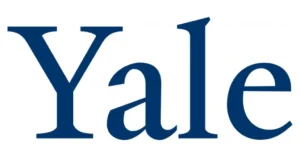
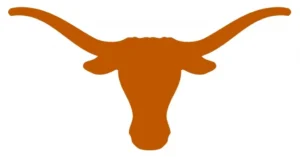
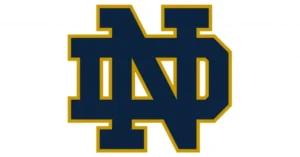
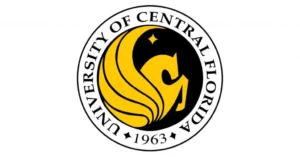
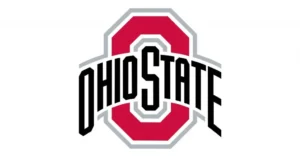
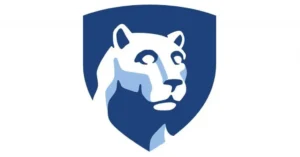
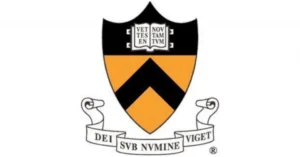
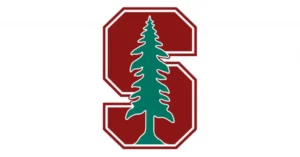
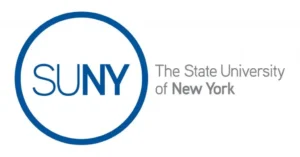
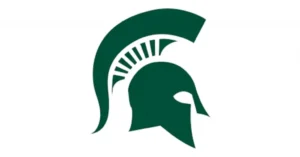
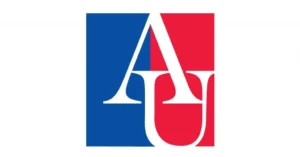
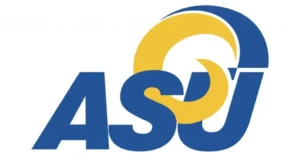
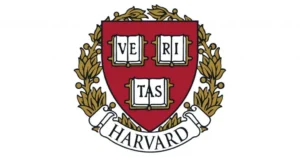
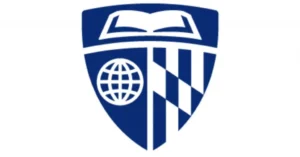
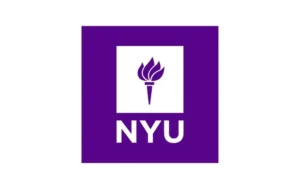
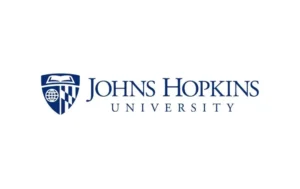
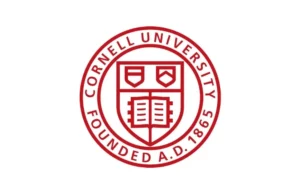
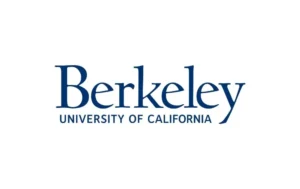
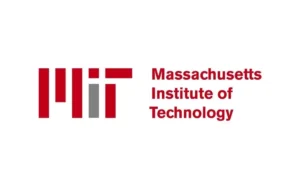
Lorem ipsum dolor sit amet, consectetur adipiscing elit. Ut elit tellus, luctus nec ullamcorper mattis, pulvinar dapibus leo.
